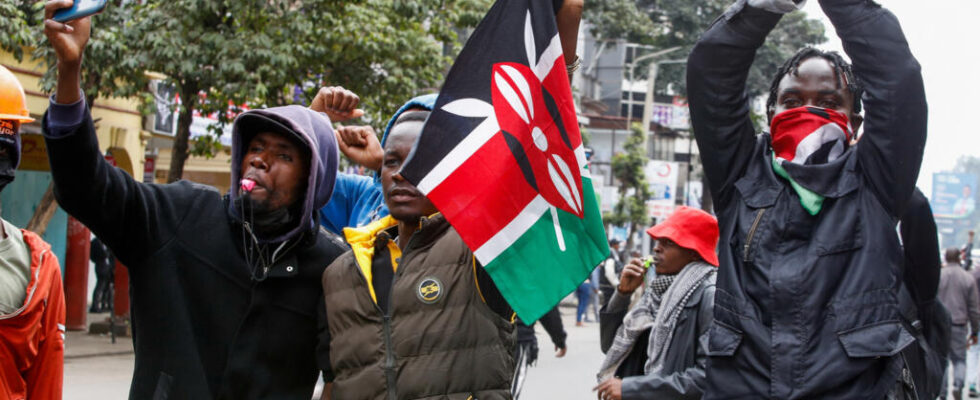Kenya has been facing major protests and tensions for the past 10 days. The cause is a controversial finance bill that planned to raise $2.7 billion in taxes that would largely affect the population. The anger is directed against the authorities, but also against the International Monetary Fund (IMF), which is seen as responsible for the austerity policies. Bissau-Guinean economist Carlos Lopes, a professor at the University of Cape Town and former executive secretary of the United Nations Economic Commission for Africa, analyzes this situation for RFI. Interview.
5 mins
RFI: Carlos Lopes, what is the IMF doing to help countries emerge from the debt crisis?
Carlos Lopes: The IMF, in this particular case, is following a G20 decision, and has created what is called a common framework for debt negotiations. It was supposed to be a response to the difficulties of the pandemic. However, it showed limitations. Most African countries which had the possibility of joining preferred not to submit to this model. And the Kenya is precisely one of the countries which has not joined. But the countries which have not joined suffer from the fact that they do not negotiate their debt around a table with all the players.
Kenya has a lot of debt with China, along with a number of other countries. And therefore, negotiating with these different interlocutors is much more difficult. Especially in the current situation where, indeed, everyone is looking at each other to see who will be served first.
And so, this is the situation that President William Ruto finds himself in. He inherited an economy with great growth. But, it is a good demonstration of the fact that growth is not everything. If you have good growth, but your currency is being devalued as is the case in Kenya, indeed, the situation is untenable.
Read alsoProtests in Kenya: President Ruto announces withdrawal of 2024-2025 draft budget
The Kenyan authorities are therefore giving up $2.7 billion in resources. What are their options now?
The options are difficult because I don’t see how Kenya can afford not to borrow on international markets. And in doing so, there will be extremely high interest rates given the assessment of the risks that everyone will make. This situation clearly shows that African countries have great difficulty accessing funds without paying absolutely prohibitive rates. In the case of Kenya, these loans will help resolve problems in the short term. But we will have to find a structural way out and I don’t see any other, other than reducing the State’s lifestyle a little, which will also have direct social repercussions.
Considering the difficulties that African states encounter with their debt, are the models applied by the IMF appropriate?
Kenya has undertaken many infrastructure projects in recent times and has therefore made considerable loans for this. The fact that Kenya cannot really service its debt comes from the fact that there is a significant devaluation of its currency. But I think that the IMF also has a little responsibility because the pill of necessary austerity reforms did not take into consideration the fact that the economy is running out of steam. And therefore, the debt restructuring models discussed at the IMF level no longer really do what is necessary to accommodate economic results which are really much more dependent on the global situation than on domestic management.
Political figures and populations have heavily criticized the IMF. Rightly, do you think?
The IMF, during the pandemic, disbursed record amounts to Africa. It also introduced much more flexibility than before. So, we cannot say that the problem is the IMF as an institution. The problem is rather systemic. That is to say that the IMF follows rules which are dictated by the most powerful and the most powerful do not really want to change the disbursements of the different types of funds calculated on the basis of quotas. These quotas give Africa roughly 5% of everything approved at the IMF. 5% is nothing at all.
The other problem we have is that we are in the process of imagining solutions to resolve the African debt. But every country in the world is having debt problems. And Africa, relative to the size of its economy, has the smallest debts in the world. So the reason she’s in this situation is because she’s paying much higher interest rates than everyone else. This is because there is a risk assessment which takes advantage of the transfer of capital to so-called more consolidated countries. And it’s because there are prudential rules that are introduced into international banks which force them to desert the African market because it is too risky. And so this combination of problems is not really the IMF’s doing, it’s really the international financial system that needs to change.
Read alsoThe IMF calls on African countries to be vigilant amid marked improvements
